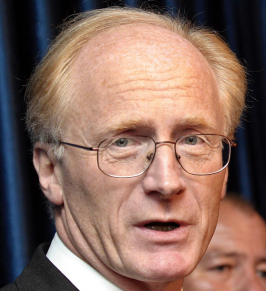Some currencies “have in the medium run to appreciate,” Trichet said in an interview with Bloomberg Television in Istanbul yesterday. French Finance Minister Christine Lagarde told Bloomberg that Europe’s economic recovery doesn’t justify further gains in the euro against the dollar.
The officials want China to do more to rebalance the world economy after it kept the yuan largely unchanged versus the dollar for more than a year, aiding its exporters and exposing those elsewhere to the dollar’s dive. The euro has gained about 16 percent versus the U.S. currency since May, raising concern among policy makers that it could slow their economy’s rebound from the worst recession since World War II.
“We need a rebalancing so that one currency doesn’t take the flak for the others” Lagarde said. “The European economy is not doing badly but it’s not doing so well that its currency can be the ultimate recourse.”
Trichet and Lagarde spoke two days after the G-7 published a statement repeating its mantra that volatility in exchange rates hurts economic growth. The communiqué didn’t single out the dollar or ratchet up rhetoric toward China, which is part of the G-20 club anointed by world leaders two weeks ago as the world’s primary forum for global economic cooperation.
‘Strong Dollar’
The dollar fell yesterday, weakening to $1.4637 per euro at 4:45 p.m. in London, from $1.4576 on Oct. 2.
The G-7 statement nevertheless “clearly says excess volatility is not welcome” in exchange rates, Trichet said in the interview. He appreciates “enormously” the U.S. Treasury’s stated preference for a “strong dollar.”
Finance officials are gathering in Istanbul for the annual meetings of the International Monetary Fund and the World Bank. They meet as the world’s major economies look to pursue policies that even-out so-called global imbalances, marked by a U.S. trade deficit and Chinese current account surplus, which they blame for helping trigger the recent financial crisis.
ECB Executive Board member Lorenzo Bini-Smaghi joined the chorus in calling on China to tie their currency less to the dollar and, by extension, the monetary policy of the U.S. Federal Reserve.
“The best way is that China starts adopting its own monetary policy and detach itself from the Fed’s policy,” said he said in a panel discussion in Istanbul.
Chinese Basket
China, which intervenes to control its currency’s value with reference to a basket of currencies including the euro, is often slow to respond to diplomatic pushes for a more flexible exchange rate. It took almost two years of international lobbying for it to break a peg with the dollar in July 2005. Economists and academics are unconvinced it will respond this time.
The head of China’s bank regulator said the yuan isn’t ready to assume the same stature as the euro and the dollar.
“I do hope that the countries with reserve currencies will be more responsible and we’ve got to be more supportive, and I think in the long-run I think together we can make some difference,” said Liu Mingkang in Istanbul. “It’s far too early to mention that the Chinese currency can be an international reserves currency.”
Further weakness in the U.S. currency means “we could get a battle of the printing presses as the Chinese try to match the printing of dollars by printing their own currency,” Harvard University Professor Niall Ferguson said in an Oct. 3 interview in Istanbul. New York University Professor Nouriel Roubini said that China has returned to an “effective peg by intervening and preventing any further appreciation of the yuan.”








